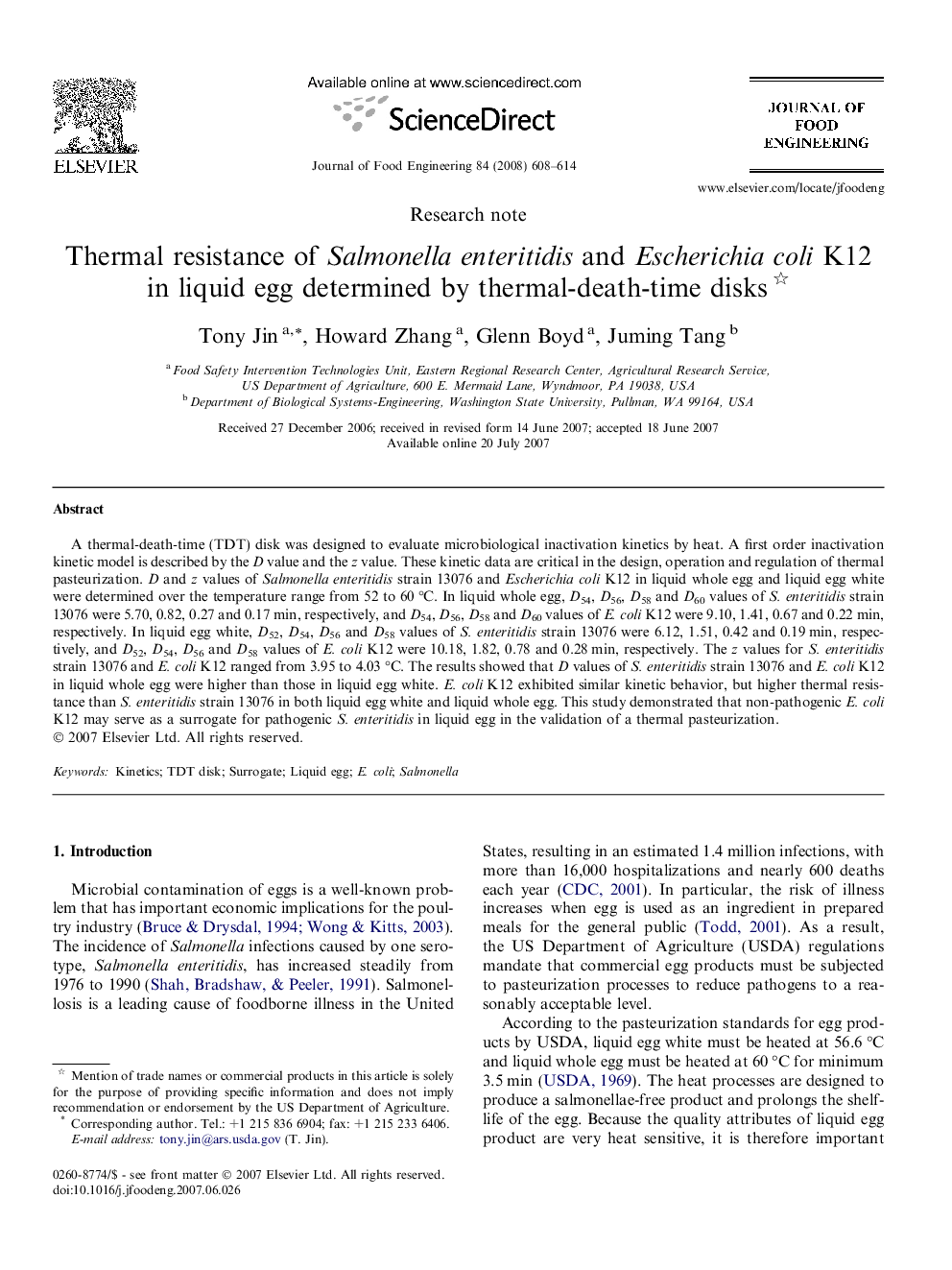| Article ID | Journal | Published Year | Pages | File Type |
|---|---|---|---|---|
| 224411 | Journal of Food Engineering | 2008 | 7 Pages |
A thermal-death-time (TDT) disk was designed to evaluate microbiological inactivation kinetics by heat. A first order inactivation kinetic model is described by the D value and the z value. These kinetic data are critical in the design, operation and regulation of thermal pasteurization. D and z values of Salmonella enteritidis strain 13076 and Escherichia coli K12 in liquid whole egg and liquid egg white were determined over the temperature range from 52 to 60 °C. In liquid whole egg, D54, D56, D58 and D60 values of S. enteritidis strain 13076 were 5.70, 0.82, 0.27 and 0.17 min, respectively, and D54, D56, D58 and D60 values of E. coli K12 were 9.10, 1.41, 0.67 and 0.22 min, respectively. In liquid egg white, D52, D54, D56 and D58 values of S. enteritidis strain 13076 were 6.12, 1.51, 0.42 and 0.19 min, respectively, and D52, D54, D56 and D58 values of E. coli K12 were 10.18, 1.82, 0.78 and 0.28 min, respectively. The z values for S. enteritidis strain 13076 and E. coli K12 ranged from 3.95 to 4.03 °C. The results showed that D values of S. enteritidis strain 13076 and E. coli K12 in liquid whole egg were higher than those in liquid egg white. E. coli K12 exhibited similar kinetic behavior, but higher thermal resistance than S. enteritidis strain 13076 in both liquid egg white and liquid whole egg. This study demonstrated that non-pathogenic E. coli K12 may serve as a surrogate for pathogenic S. enteritidis in liquid egg in the validation of a thermal pasteurization.
